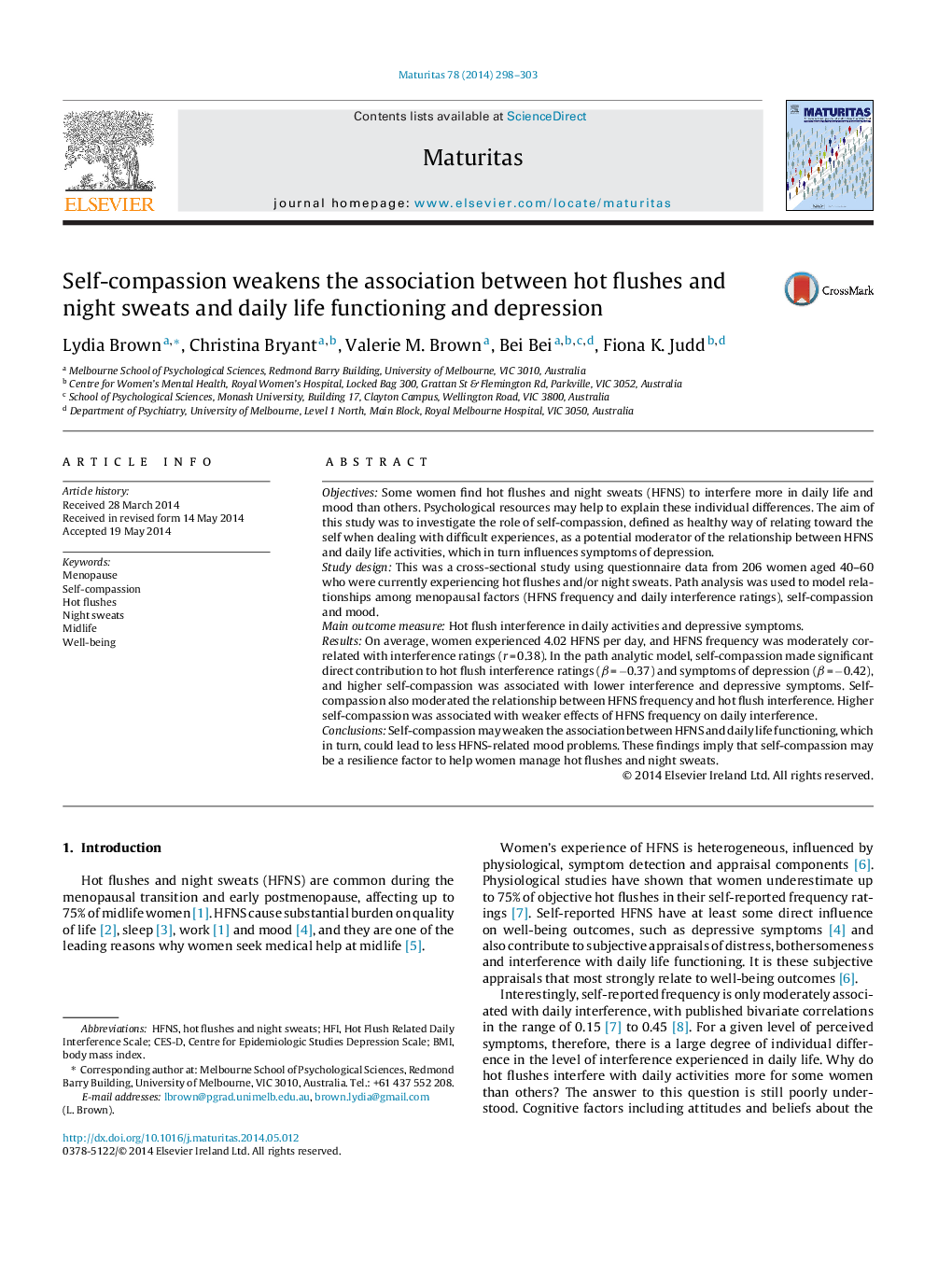| Article ID | Journal | Published Year | Pages | File Type |
|---|---|---|---|---|
| 1917251 | Maturitas | 2014 | 6 Pages |
ObjectivesSome women find hot flushes and night sweats (HFNS) to interfere more in daily life and mood than others. Psychological resources may help to explain these individual differences. The aim of this study was to investigate the role of self-compassion, defined as healthy way of relating toward the self when dealing with difficult experiences, as a potential moderator of the relationship between HFNS and daily life activities, which in turn influences symptoms of depression.Study designThis was a cross-sectional study using questionnaire data from 206 women aged 40–60 who were currently experiencing hot flushes and/or night sweats. Path analysis was used to model relationships among menopausal factors (HFNS frequency and daily interference ratings), self-compassion and mood.Main outcome measureHot flush interference in daily activities and depressive symptoms.ResultsOn average, women experienced 4.02 HFNS per day, and HFNS frequency was moderately correlated with interference ratings (r = 0.38). In the path analytic model, self-compassion made significant direct contribution to hot flush interference ratings (β = −0.37) and symptoms of depression (β = −0.42), and higher self-compassion was associated with lower interference and depressive symptoms. Self-compassion also moderated the relationship between HFNS frequency and hot flush interference. Higher self-compassion was associated with weaker effects of HFNS frequency on daily interference.ConclusionsSelf-compassion may weaken the association between HFNS and daily life functioning, which in turn, could lead to less HFNS-related mood problems. These findings imply that self-compassion may be a resilience factor to help women manage hot flushes and night sweats.
